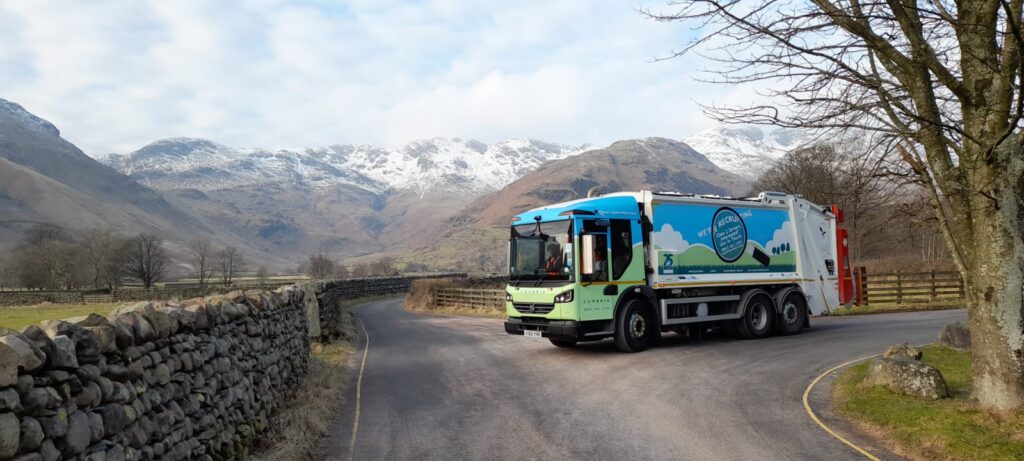Adrian Kneebone pleaded guilty to two offences under the Environmental Permitting Regulations 2007 including the illegal use of unsuitable waste to create an earth bund at Kennards House, Launceston and illegally depositing waste on land at West Honiton Farm, Launceston.

Mr Kneebone changed his plea to guilty on the fourth day of the trial which started on Monday (June 25).
Mr Kneebone was fined 30,000 by Bodmin Magistrates Court and ordered to pay 36,525 in costs. R K Transport was also fined 40,000 for the same offences and both parties were ordered to pay a 15.00 victim surcharge.
The firm, which is based in Launceston, offers tipper and skip hire services, supplies recycled sand and aggregates as well as the disposal excavated and demolition material.
Commenting on the case, Alison Gidlow, from the Environment Agency, said: The defendant is an experienced waste operator and knew the types of wastes that were not acceptable for deposit at these two sites. He was motivated by profit and saved a considerable amount of money by not taking this waste to a landfill for safe disposal. The Environment Agency will not tolerate the abuse of U1 exemptions and will use all its investigatory powers to deal with this type of environmental crime.
R K Transport was unavailable for comment when contacted by letsrecycle.com.
Investigation
On February 3 2010 Environment Agency officers visited a waste transfer station at Kennards House, in Launceston, Cornwall where R K Transport had constructed a 250-metre long bund around the site.
The Agency said that planning permission for the bund stated it should only be constructed of soil/stones and other inert materials.The reuse of non-hazardous waste in this way means the site operator doesnt require a standard environmental permit or have to pay landfill tax. However upon inspection the officers found the bund contained a number of materials that shouldnt have been present including pieces of glass, metal, wood, rubber, wire, steel reinforcing rods and asbestos.
They noticed a very strong smell of landfill gas when they excavated a series of inspection pits in the 2.5 metre high bund. This indicated some of the deposited material was decomposing and was not inert.
Bund
The Agency explained that Mr Kneebone said the bund contained approximately 8,000 tonnes of material that had come from various waste sites including one on the outskirts of Plymouth. On inspection much of it was found to be unsuitable for bund construction without further processing.
On February 10 2010 Agency officers visited the waste company that had supplied the waste. The company confirmed it had supplied R K Transport Limited with 9,450 tonnes of construction and demolition waste and 2,499 tonnes of household waste from civic amenity sites. Analysis of samples taken from the bund at Kennards House confirmed the presence of asbestos and metals.
Materials
Officers also visited West Honiton Farm near Launceston where R K Transport and Mr Kneebone had obtained an exemption to deposit up to 2,500 tonnes of subsoil and shillet to maintain and repair tracks and a farm yard, which contained a flattened area protruding out over a steep-sloping field.
Related Links
A statement from the Agency said that the surface appeared to be made up of clean shillet, but when the officers inspected the exposed sides and slopes they discovered non-exempt materials including plastic pipes, fragments of metal, a plastic drum pipe, car tyre, green waste, silicone cartridges, concrete reinforcing bar, plastic twine, fabric and wood.
It said that when officers excavated the area they noticed a strong odour of ‘landfill gas’ which indicated that some of the waste was decomposing.
Following this inspectection, the case was brought against R K Transport by the Agency which said it was supported by a number of external witnesses, including an officer from Cornwall councils planning enforcement team, who all offered to give evidence in support of the prosecution.







Subscribe for free